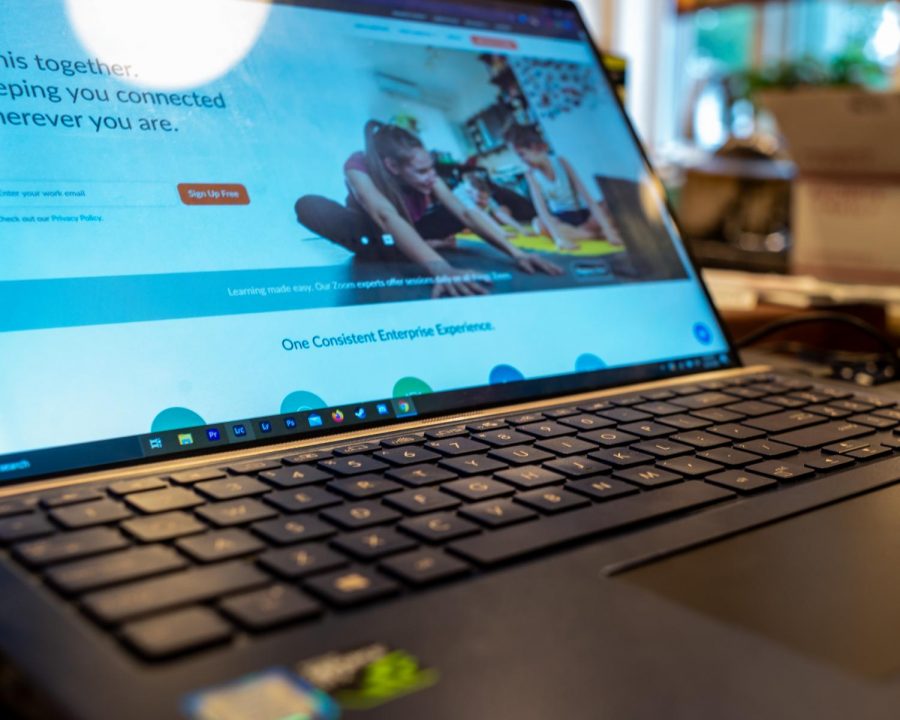In the spring of 2020, the COVID-19 pandemic silenced the campus of the University of Massachusetts. In only a few short days, students were forced to frantically make arrangements to go home and abandon their belongings and friends with no end in sight. While the campus remained lifeless, UMass moved classes online.
The 2020-2021 academic year was the first time many UMass students took online classes. Likewise, many professors had never taught an exclusively online curriculum and had to quickly shift their entire lesson structure away from the methodology they have been using for years. Online school presented an unlimited number of challenges for UMass, but the school was able to adapt and successfully complete a year of online education.
Today, UMass is in a very different place. Campus is alive again, and students are able to attend lectures in a classroom rather than from their beds. Students are expected to follow guidelines to minimize the spread of the virus, but the UMass campus has managed to return to form after being empty for so long.
The challenge today is not as simple as minimizing the spread on a campus with so many people. Although the rise in COVID cases on campus is reason for concern, it’s only half the story. The problem is also that people are getting very sick as multiple non-COVID illnesses make their way through the student body. This is nowhere near a surprising occurrence, as colds often spread quickly on college campuses within the first few weeks. It is also no surprise that after a year of heightened awareness about public health, the spread of these colds is concerning to professors and students alike.
Current guidelines at UMass heavily encourage students to attend class in person. For instance, even those who are close contacts with someone positive for COVID-19 are expected to attend class unless they experience symptoms. Paired with the fact that testing is optional this semester, it is completely understandable that professors are concerned with the spread of COVID-19 within their classrooms.
The fact of the matter is, professors teach to a crowd of students — many of whom are visibly sick — with the knowledge that testing is not mandatory, and any student could already be infected with COVID-19. This reality has prompted discussion about returning to online classes or incorporating aspects of online classes, in order to further minimize spread.
The idea of classes moving online as punishment for increased spread of COVID-19 is absurd. Threats such as “if you don’t wear your mask, we can get moved back online” fail to acknowledge the fundamental flaw with online instruction: online learning is simply inferior to in person instruction. This fact is understood by everyone from STEM students who were forced to conduct labs online during the pandemic, to English majors who try to have quality discussions with people in breakout rooms with their cameras off. Online school simply lacks the ability to provide the hands-on experience and collaboration that is so vital in a college setting. Discussion and collaboration mark the college experience, and online school makes any kind of connection with other people nearly impossible.
Students at UMass need to understand they are paying for a commodity. UMass is serving the student body the product of education, and it is vital students understand exactly what they are paying for. UMass was able to charge full tuition for online classes last year, but times have changed and the University now has the ability to offer an in person experience. Students are paying a lot of money for a hands-on education that simply cannot be matched online.
Any reversion to online class would be a great downgrade in the quality of education provided by UMass. It does not matter if the reversion is prompted by a legitimate rise in COVID-19 cases or not, UMass should never consider reducing the quality of someone’s education at full price. Students dish out hefty tuition payments to attend this school, and online classes fail to provide students with the product they are paying for.
Garrett Jacobsmeier can be reached at [email protected].



















